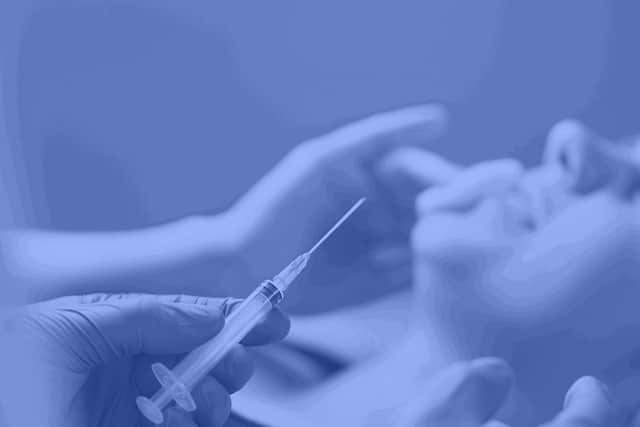Cosmetic surgery abroad: risks of procedures overseas explained - and what is ‘Turkey Teeth’ warning?
and live on Freeview channel 276
The popularity of heading abroad for cosmetic surgery has surged over the past few years.
Recently, dentists warned of the dangers of travelling overseas for dental surgery, commonly known as ‘Turkey teeth’ - due to the country being a popular choice among those looking for a new look.


Advertisement
Hide AdAdvertisement
Hide AdBut how safe is cosmetic surgery abroad? Here’s what you need to know.
What are the risks of cosmetic surgery abroad?
Ruth Waters, consultant plastic surgeon and British Association of Plastic, Reconstructive and Aesthetic Surgeons (BAPRAS) President, told NationalWorld that no procedure is free from risk and complications after cosmetic surgery can occur both in the UK or abroad.
However, she said that if you choose to have a surgical cosmetic procedure in the UK, then the surgeon who conducted the surgery will provide you with any necessary aftercare.
Therefore, if something does go wrong, either if a complication arises or the outcome of the procedure is “unfavourable”, then the surgeon will be on hand to discuss it with you and decide how the problem can be resolved.
Advertisement
Hide AdAdvertisement
Hide AdBut, Ms Waters said this reassurance “cannot easily be provided when travelling abroad to have cosmetic surgery.”
“Some clinics overseas will not have someone in the UK for you to turn to if problems arise and for many of those that do, it is a nurse or GP, not a trained specialist,” she added.
Any potential cost savings that might arise from travelling abroad should therefore be balanced against this and taken into account. Other factors also need to be considered such as, the need to take time off work and the cost of potentially having to return to the overseas clinic for corrections.
Both air travel and major surgery also increase the risk of developing deep vein thrombosis or a pulmonary embolism after surgery so flying soon before or after an operation abroad combines these risks, said Ms Waters.
Advertisement
Hide AdAdvertisement
Hide AdAlthough there are some very well-trained surgeons outside the UK, this can be difficult to check, whereas in the UK, fully qualified Plastic Surgeons will be on the General Medical Council Specialist Register for Plastic Surgery.
However, other countries use different systems and because of differences in standards and qualifications “it is not easy to find out if a surgeon overseas is a fully trained plastic surgeon,” Ms Waters added.
“You should always ask a surgeon what training and qualifications they have and what organisations they belong to. No respectable surgeon will mind this in the least,”she said.
How many people have been affected by botched surgery?
The recent warnings come after the British Association of Aesthetic Plastic Surgeons (BAAPS) called for action back in April, after an audit revealed a 44% rise in botched cosmetic surgery from abroad.
Advertisement
Hide AdAdvertisement
Hide AdThe BAAPS Audit showed that 324 patients required surgery after returning to the UK in the past four years.
The annual number rose by 44% in 2021 compared to the previous year, a period when people were advised against elective surgery and unnecessary travel due to the Covid pandemic.
In 2021, 75 women and 7 men were treated for complications which included some with life threatening problems such as the need for emergency surgical removal of dead skin tissue and admission to intensive care for life support following systemic infection.
“These complications, despite treatment, would still leave permanent life changing physical deformities along with the psychological effects of these injuries,” the BAAPS said.
Advertisement
Hide AdAdvertisement
Hide AdA survey of BAAPS council members showed that 100% of complications came from Turkey and that abdominoplasty - also known as a ‘tummy tuck’ - accounted for 75% of complications, followed by breast surgery procedures at 25%.
At the time, Mary O’Brien, President of BAAPS, said: "When patients go abroad for cosmetic surgery, they usually have no knowledge of the competence and experience of the surgeon, and there is very little prospect of follow-up care and advice.
“Best practice is compromised by the fact that patients are only meeting their surgeon immediately before a procedure - at which point generally they are committed to and have paid for the surgery.”
She said patients then return to the UK “without adequate medical records, if any,” with follow-up after surgery being difficult to carry out.
Advertisement
Hide AdAdvertisement
Hide Ad“Complications do occur and are usually left to the British system to pick up,” Ms O’Brien added.
“The surgeons involved in these schemes do not have a work permit nor are registered in the UK, and it is unlikely there will be any possibility of seeking revisional surgery.”
Comment Guidelines
National World encourages reader discussion on our stories. User feedback, insights and back-and-forth exchanges add a rich layer of context to reporting. Please review our Community Guidelines before commenting.
